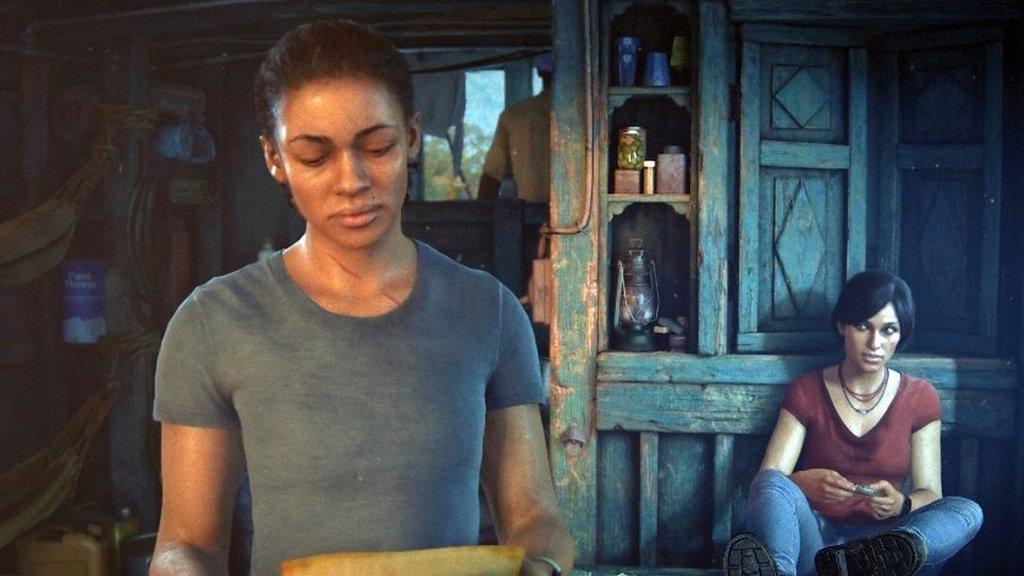Video games: How big is industry's racial diversity problem?
- Published
WATCH: Uncharted: The Lost Legacy is one game to feature a black woman protagonist
When Uncharted: The Lost Legacy was released this year, it gained a lot of attention - not because it is the latest instalment for a popular franchise, it stood out for another reason.
The game was set in India, had two lead women, and one of them, Nadine Ross, is a black South African.
Other big releases this year include Assassins Creed Origins, which is set in Egypt with an African protagonist, while Star Wars Battlefront II used the likeness and voice of Janina Gavankar, an actress with part-Indian heritage.
But speaking to BBC Asian Network, Jo Twist, chief executive for Ukie, the trading body for the UK's games industry, said there was still a long way to go before video games could be truly representative of the gaming audience.
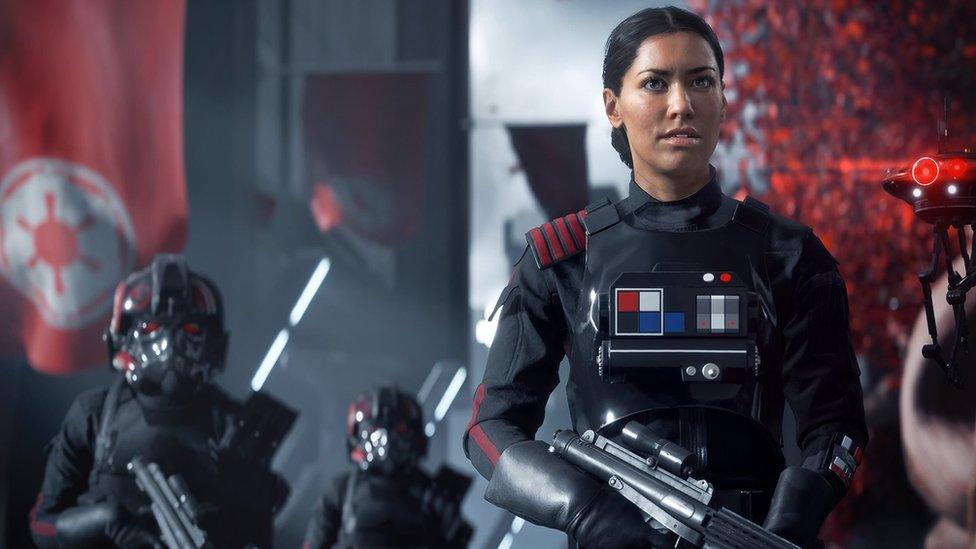
Star Wars Battlefront II's Iden Versio is modelled on Janina Gavankar, an actress with Indian and Dutch roots
She says there are not enough game designers from black or Asian backgrounds working and that this is reflected in what we are playing.
There has not been a lot of research done on racial representation in games.
The most up-to-date figures for employment in the games industry, though, are from a 2015 Creative Skillset survey.
It suggests only 4% of game designers in the UK come from black or Asian backgrounds. That's down from 4.7% in 2012 and below the national average of 10% across all sectors.
The appeal of gaming is huge: 21 million people play games in the UK, about half of them are women and 27% of them are over the age of 44.
Globally, 2.2 billion people play games in some form and it's an industry that continues to grow.
We asked four industry insiders from black and minority ethnic backgrounds, if gaming had a diversity problem.

Chella Ramanan - journalist and game developer
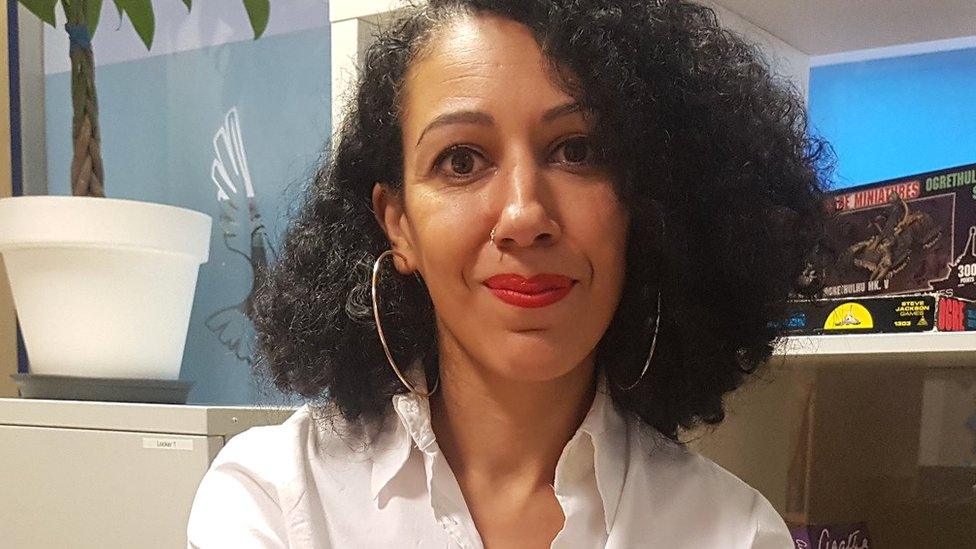
The video games industry is not fine as it is - the racial-background figures show it is not representative.
The problems widen out to class and gender too, so across the board there is a diversity issue.
Perhaps it is getting better in terms of representation in the games themselves, but it is quite easy for an all-white male team to put a woman of colour in a lead and think: "Job done."
What we really want is people from minority communities in those teams, involved in the creation process and then also in senior positions to change the face of the industry.
Traditionally games have primarily been advertised at teenage boys, particularly white middle-class teenage boys.
You then start to see this cycle of white, middle-class men making games that reflect themselves, which means characters in games don't look like that black or Asian kid in inner-city London or Leeds.
So, it perpetuates this homogenous industry and it's exactly the same in terms of gender.
It's about including a broad range of voices and experiences in your games so that people from different backgrounds see themselves represented.
That is important because it might make them think that they can also come up with a cool story for a game with people in it who look like them.
I am seeing things change, though. Uncharted's Nadine Ross was amazing for me because she has got curly afro hair.
There are more black leads coming through but we just want to encourage even more diversity and more voices of young people who may otherwise think the games industry is not for them.
But as an industry we have to make the message clear that the door is open for everybody to tell their stories.

Sitara Shefta - producer, Dream Reality Interactive
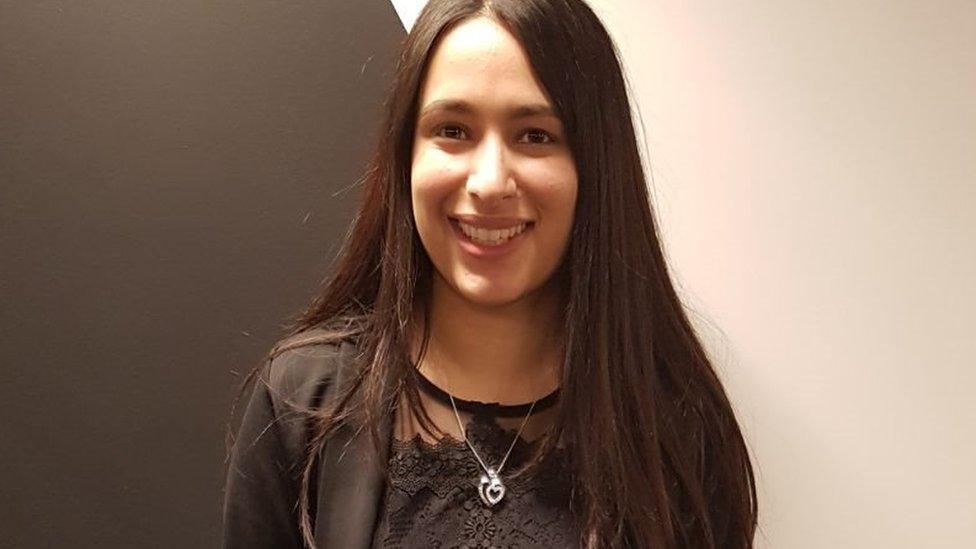
The industry recognises there is an issue with diversity, but it has been working hard to improve.
It starts at the root. You need, for example, start-ups that make it a core value to hire diverse teams. If it's a value they hold from the beginning, it's something they can maintain and build from.
But it's an issue for established games studios too. If you are targeting a worldwide release, if you don't have people from all walks of life contributing to it then something is going to be missed.
As a British Asian female working in the industry, there have been some challenges. One example is a project I worked on where we were selecting six characters to be the faces of the game.
At first, everyone in the room chose six white characters. I had to point out that none was black or Asian. It hadn't been been considered to be an important factor, but it should have been as changing it made the characters more relatable to many players.
Jobs in the games industry also need to be taken more seriously by the British Asian community. It's not a profession that's traditionally encouraged.
We need to go back into our communities and schools to say: "Look, I'm an Asian woman that makes games, that's awesome and you can do it too."
To be able to say that to other Asian kids who love playing games but have not considered it as a career, would help.

Asim Tanvir - social-media manager, Konami Europe
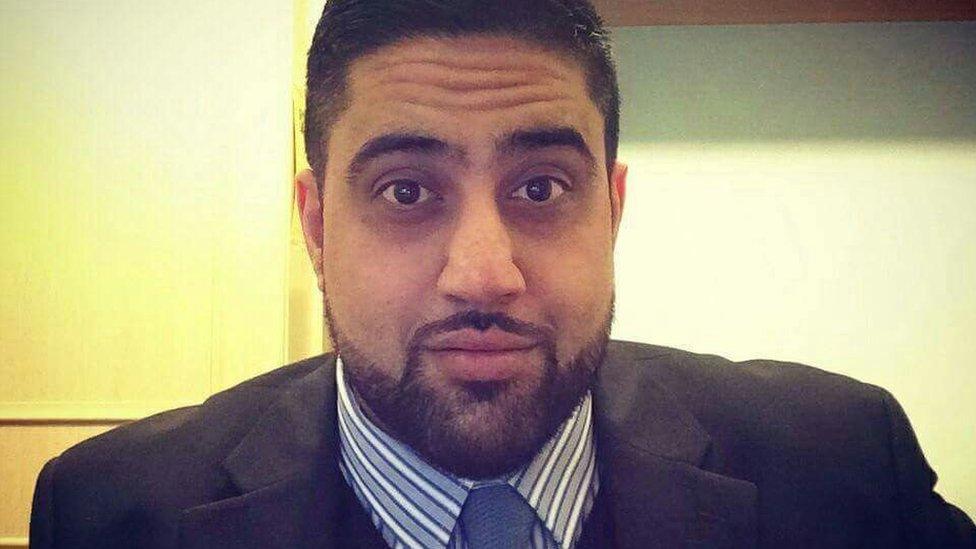
I do not think there is a diversity problem in the gaming industry.
It is a very welcoming industry, and small too, so everyone knows each other.
I can only go by my experience, and I know quite a few British Asians in the industry, so I feel like there is diversity within the creative side of things.
I know that 2K and Nintendo have South Asian staff as well. And Rockstar Games is a huge studio, and if you check the credits on their games like Grand Theft Auto you will see Indian and Pakistani names there.
The roles they have are seldom public-facing, so maybe that is why there is a perception of there being a problem.
Companies can always do more to improve diversity but I think if you just pick the best talent and put background and race aside, you will find a mix of people come into the industry.
In terms of the content we are seeing, the industry is still in its infancy but we have seen great strides. We have seen Indian characters in games like Assassins Creed, The Order 1886 and in this year's Uncharted.
I don't think there will ever be a pushback from including more diverse content, but it just needs to make sense to do it.
Doing it just for the sake of it will come across as disrespectful.

Kish Hirani - chairman, Black, Asian and Minority Ethnic (Bame) in Games Network
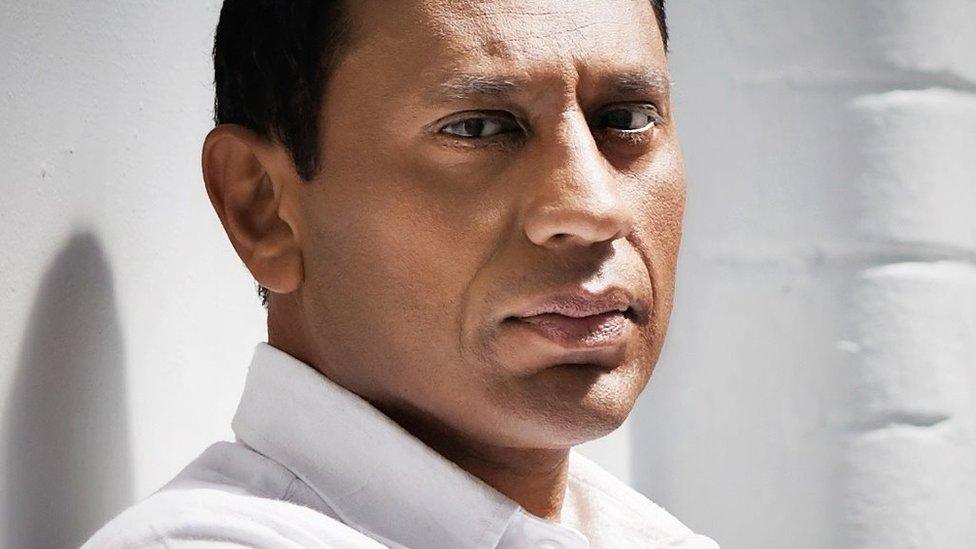
There is a problem, but I think it is not with the industry itself, but that not enough people from a wide enough range of backgrounds are applying.
This is not just an ethnic minority issue. Generally video games still suffer from the label of not being a "proper job" to a lot of people.
But when you reflect this into ethnic minority communities it is amplified. Being from an Indian family, picking a career in the video games industry can be a complete no-no.
Luckily for me, I was head-strong. I did what I wanted to do. But not many people can escape family pressure.
Up until recently, video games have often suffered bad publicity as well, which has helped to create a negative perception.
To improve diversity in the studios, we need more mentors and people to relate to, so if someone looks at me, they can say: "OK, I can get a job there because someone who looks similar to me has been successful." It's important not to underestimate how important this is.
Solutions we are working on include creating incubation centres, where we can develop talent from different backgrounds.
What I would not encourage is any kind of segregation, but if targeted work helps attract people who otherwise might not join, that can only be a good thing.
- Published20 December 2017
